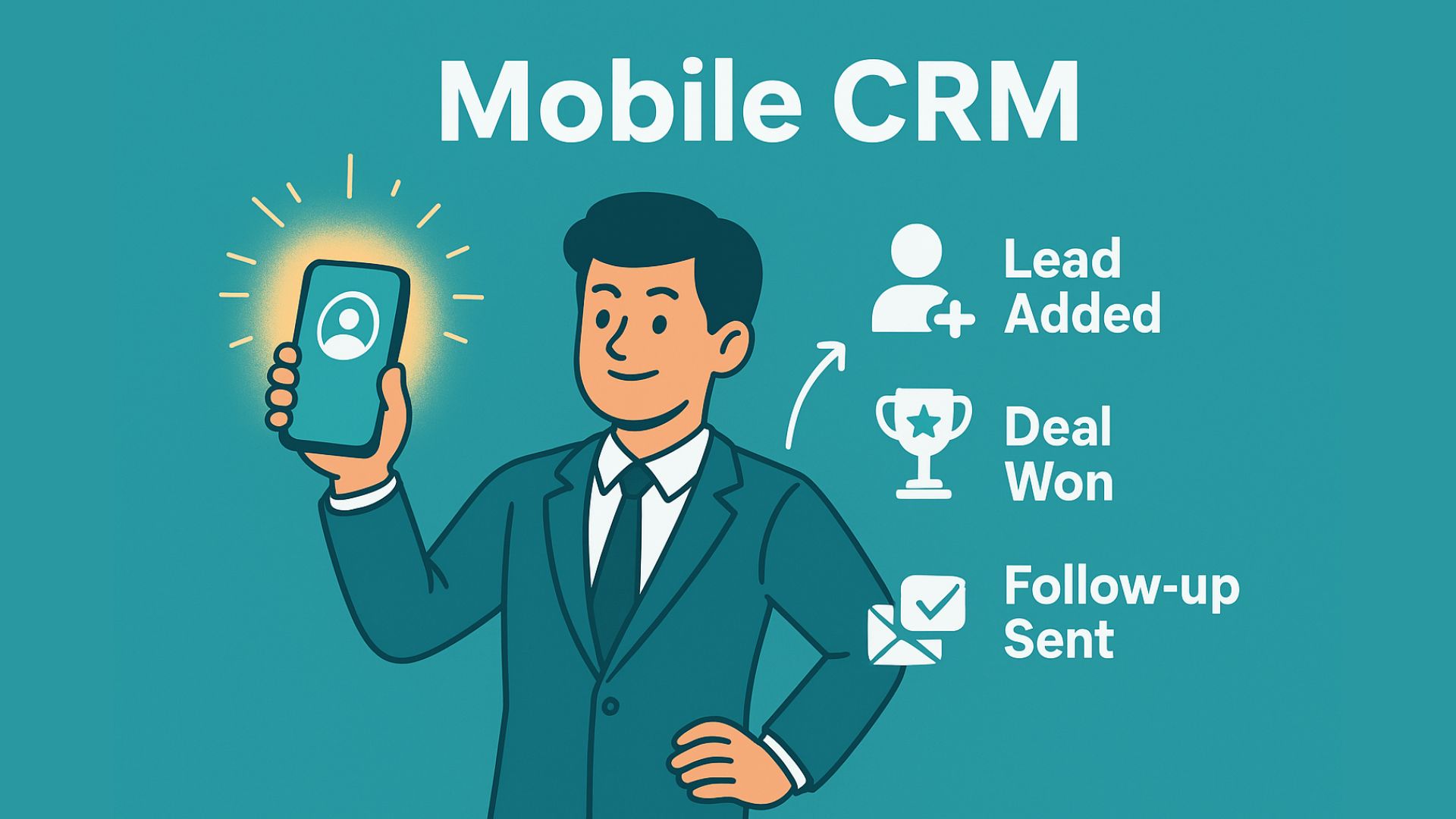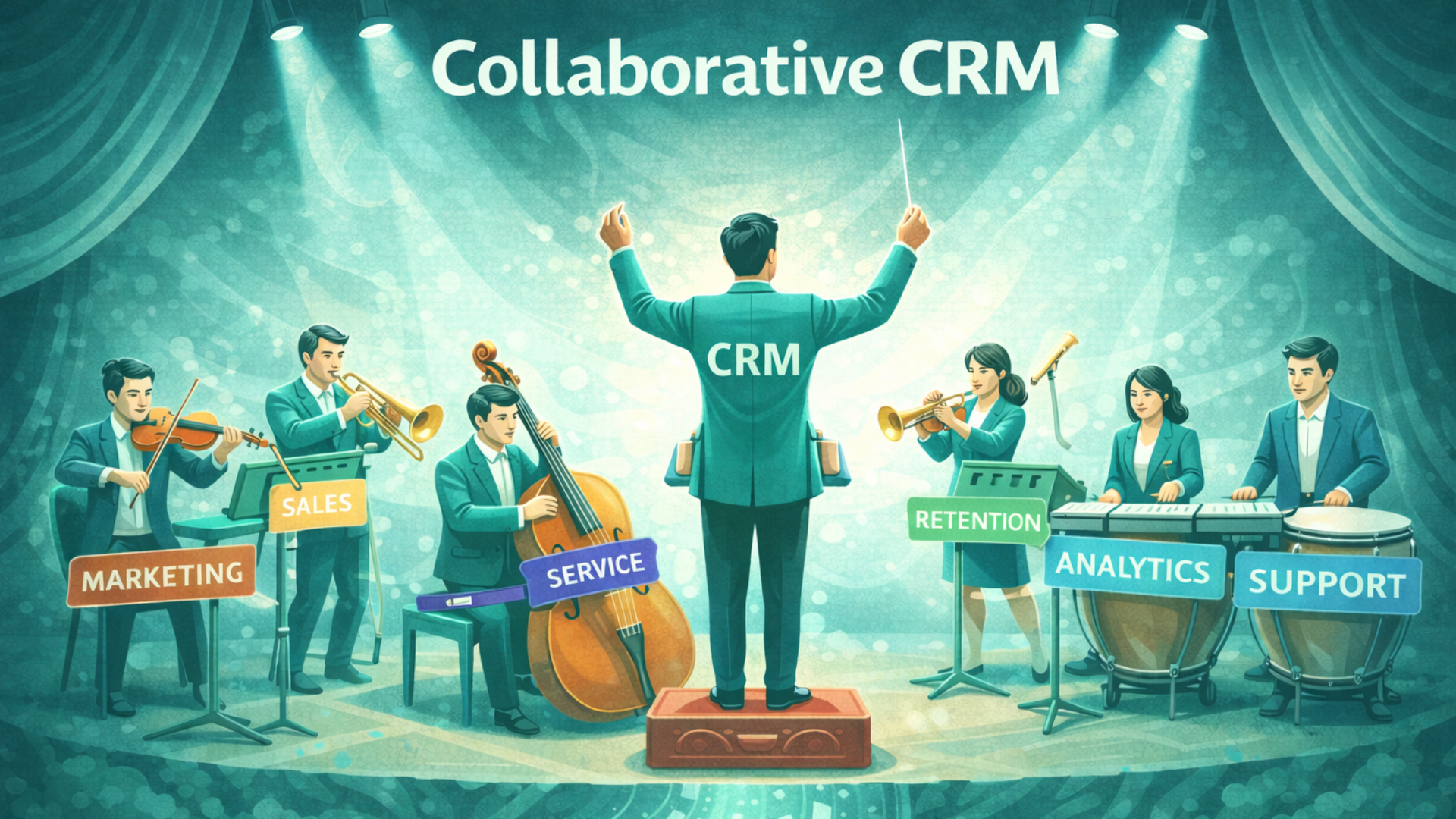

A CRM should live in the pockets of sales reps. Whether they are out in the field or want to log an immediate interaction with a potential customer, 24/7 access to this tool is crucial to achieve targets and boost business revenue.
What is a mobile CRM?
Unlike desktop CRMs that assume stable connectivity and longer sessions, mobile CRMs are built for speed, accessibility, and short, high-impact interactions.
They prioritize quick data entry, offline access, camera and voice inputs, and instant synchronization - helping teams act while conversations are still fresh.
Businesses that enable mobile workflows win in two ways: speed and coverage.
A faster follow-up means fewer leads slipping through the cracks, clearer image capture and forms upload, all of which results in a speedy deal closure.
This need for speed is what drives sales organizations to choose AI-enabled CRMs like Superleap.
According to crm.org, 65% of the sales executives using a mobile CRM deliver their quota in comparison to 22% who don’t.
Who should use a mobile CRM?
- Field sales and distribution teams working across territories
- Real estate agents managing site visits and walk-ins
- Healthcare and home-service professionals logging visits
- Retail and pop-up teams capturing leads on-site
- Education counsellors handling walk-ins and follow-ups
What are the benefits of mobile crm?
- On-the-go access
- Faster follow-ups (especially for field agents in low-network areas)
- Instant information sharing
- Reduced friction between devices
How does a mobile CRM differ from desktop CRM?
While it is not possible to replicate every detail from a desktop CRM, speed and ease of adaptability should be top priority.
Key differences
UI/UX: Mobile needs large tappable targets, short forms, and task-focused screens.
Data input: Typing is slower - so voice, camera, and prefilled selectors matter.
Connectivity: Offline-first behavior and intelligent sync are critical for field work.
Battery & performance: Apps must be lightweight and efficient to avoid draining devices.
Security: Mobile introduces device-level risks - policies for app lock, SSO and wipe capabilities are essential.
Use cases of a mobile friendly CRM across different departments
Field sales & distribution
Use-case: Territory reps capture orders on site, route plan, and send invoices.
Mobile feature needs: Offline order capture, barcode scanning, signature capture, route optimization.
With Superleap, you can effortlessly plan field routes, track GPS location and geo-fence tasks.
Real estate & property visits
Use-case: Agents take property photos, log client feedback, share listings instantly.
Mobile feature needs: Real estate CRMs have high-quality photo upload, geo check-in, log visit notes, WhatsApp sharing, quick lead creation, eSign offers on the spot, and push leads to back-office for finance checks - this shortens the sales cycle and reduces data loss at open houses.
Home services & healthcare
Use-case: Technicians log visit notes, collect patient or job photos, confirm completion.
Mobile feature needs: Healthcare CRMs must have forms with compliance checkboxes, attachments, time-stamped logs, offline mode.
Events & retail popups
Use-case: Capture leads on kiosks or via staff phones; scan badges or QR codes.
Mobile feature needs: QR/barcode scanning, quick-contact capture, instant sync to marketing & SMS.
Education / coaching centers
Use case: Counsellors log attendance details and visits, send automated follow-ups via phone or WhatsApp, capture walk-in & telephone leads.
Mobile feature needs: Education CRMs are expected to have lead capture forms, WhatsApp integration, follow-up automation, attendance tracking, and offline data sync for low-connectivity areas.
Superleap is purpose built for this area, focusing on high-volume capture and automated follow-ups.
Mobile CRM examples
- A field sales rep updates deal notes immediately after a client meeting
- A real estate agent uploads site photos and sends listings on the spot
- A healthcare worker logs visit details offline and syncs later
A mobile CRM is an investment for growth. The best way to pick one is shortlist the ones that meet your requirements and run a pilot. Build real workflows, test them for about 2-3 weeks and ultimately go with the one that your reps are using with ease and producing desirable results.
Heading text
Nunc sed faucibus bibendum feugiat sed interdum. Ipsum egestas condimentum mi massa. In tincidunt pharetra consectetur sed duis facilisis metus. Etiam egestas in nec sed et. Quis lobortis at sit dictum eget nibh tortor commodo cursus.
Odio felis sagittis, morbi feugiat tortor vitae feugiat fusce aliquet. Nam elementum urna nisi aliquet erat dolor enim. Ornare id morbi eget ipsum. Aliquam senectus neque ut id eget consectetur dictum. Donec posuere pharetra odio consequat scelerisque et, nunc tortor.
Nulla adipiscing erat a erat. Condimentum lorem posuere gravida enim posuere cursus diam.
.svg)




.jpg)
.jpg)
